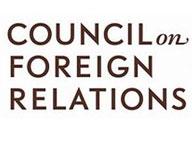Faculty News
—
Prof. Joseph Foudy discusses growth in the job market
—

Excerpt from New York Post -- "'We still have a long way to go to undo the damage from the financial crisis,' said New York University economics professor Joe Foudy. 'The percentage of Americans in the labor force remains far below where it should be.'"
Faculty News
—

Excerpt from New York Post -- "'We still have a long way to go to undo the damage from the financial crisis,' said New York University economics professor Joe Foudy. 'The percentage of Americans in the labor force remains far below where it should be.'"

















